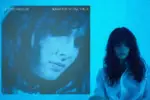The majority of songs they create are dubstep, but calling RIOT “dubstep producers” sells them short. The Israeli-American production duo, consisting of Tom Davidson and Daniel Magid, have made a name for themselves, not because of their signature genre, but because of the ways they depart from it. Almost every song from RIOT has twists and turns through genres and styles that forces listeners to stay engaged, and this tactic has won them many fans.
In 2018, the duo appeared at No. 1 and No. 5 in the Best of 2018 list from their record label, Monstercat, and the announcement of an upcoming album was met with excitement and anticipation from fans. Now that the album “Dogma Resistance” is finally out, it has a lot to prove. How does the story and music stack up to fans’ expectations?
Essentially throughout the album, the world is being ravaged by an invading force from the stars called the Machine. This enemy, represented by a female voice, attempts to shut down rebellion and quash discontent. A female news reporter warns listeners that “a reign of terror” began two days ago that has not yet slowed down, which leads into the album’s narrator repeating the aforementioned rallying cry of the mob.
The album opens with a gothic orchestral song called “Overture 1990,” which sets up the narrative of the album. The beautiful instrumental takes inspiration from the midsection of “The Mob,” a song that comes later on the album; a portion of the rallying cry speeches in the overture also come from “The Mob,” but this introduction expands on the lore significantly. The song ends with another quote from the track: “It’s time to light up the sky with fire.”
This opening exposure to the album’s story gives an idea as to the album’s theme of resistance against authority, but the speeches and explanations are often muddled underneath a too-loud instrumental. It helps to look up the lyrics to this song in order to understand them; this confusing mixing decision takes away from some of the intro’s impact.
“Jungle Fury,” originally released in January 2019, is a powerful introduction to the intense dubstep on the rest of the album. The beginning of the song contains synthesizers that mimic the sounds of elephants, which reappear throughout the track, leading into a 16-note fueled dubstep drop. The second half of the first drop is ruled by extended howling synthesizers that are at once grating and exciting.
Overall, the most exciting part of this first section is the wilderness-themed atmosphere, which is accentuated in the midsection between drops. Trance-like melodies float throughout the elephantine screeches from the beginning, and the listener’s attention is kept piqued until the relentless psytrance breakdown in the second drop. The psytrance eventually evolves into breakbeat before returning to the song’s dubstep roots.
A remix of RIOT’s June 2017 single, “Disorder,” is the second full song on “Dogma Resistance.” The updated edition, “Disorder (Rebirth),” is very similar to the original; its opening 30 seconds up until the first drop are almost identical. The clanging bell sounds used throughout the track are familiar as well, as is to be expected from a remix, but the drops are almost entirely new.
The original’s first dubstep breakdown feels slightly empty in comparison to the “Rebirth” edition, which is full of screeching bass, intense growls and hi-hat hits on the third beat of every measure. The first drop ends with an unexpected transition into riddim, and the humming bassline beneath the main melody is infectious. This surprise is short and only lasts 10 seconds, almost as if the duo were afraid to alienate listeners with something too different, but the drum and bass switch-up in the second drop takes the sting away.
However, the prelude to this chaotic drop has the female voice of the machines telling the resistance that they will “enslave your planet, deplete your resources, while crushing your resistance to the ground. But for now … it’s time for drum and bass.”
Two things in this quote work against the song: for one, it spoils the reveal of the drum and bass switch; second, it interrupts the theme of the album by having the authoritarian leader use a tongue-in-cheek reference to the duo’s music. This is made especially incongruous by the fact that there are no other comments like this throughout the rest of the project. It’s an odd interruption.
Where “Jungle Fury” was about the wilderness, “Blackwater” is an homage to the Wild West. The introduction has the muffled and scratchy feeling of an old-timey cinema reel; unfortunately, the narration is again hidden by the synths and atmospheric flourishes. Once the horns and whistling kick in, the Wild West atmosphere hits full stride.
The album’s narrator confirms that the Machine has spread her reign of chaos to the West, and that “a thief, a cutthroat, and a bank robber” have banded together against her evil. The dubstep drops themselves are full of classic RIOT growls and screeches and include an electric guitar that propels the track forward. As an atmosphere-builder, this track is great, but the best atmosphere is in the next full-length track.
Blackwater 🤠 Nov7https://t.co/ila3DBBTmj pic.twitter.com/Qs4w3AuccQ
— RIOT (@RIOTmusic) November 2, 2019
The next track is a minute-long interlude that transitions the focus of the album to the Middle East, assumed to be Israel from the Hebrew lyrics. The song after the interlude, “Aiwa,” builds its Middle Eastern style through distinct melodies and high-pitched warbling instrumentation. The dubstep drops are each distinct with their own melodies and samples, and the spaces between them are rife with creative use of these samples and sounds, but the final drop stands out above the rest.
It’s a more stereotypical brostep drop with eight-note melodies, but it hits extremely hard along with a quick switch to moombahton at the end. The song begins and ends with a humorous dialogue between a father and son about Middle Eastern music, which adds some levity to this serious second leg of the album. “Aiwa” is a highlight off of the album and stands well on its own as an explosive dubstep track.
According to the lore of the album, the protagonists or subjects of each song come together at this point to make a concentrated resistance against the Machine. The final two songs are fighting music, to be sure, and everything begins to coalesce.
“The Mob” is the first single that was released for “Dogma Resistance” in June 2018, 16 months before the release of the album. This song is a 5 1/2 minute odyssey of dubstep, and it only steps off the gas briefly in the middle before it’s back in full force. The first drop is an inventive brostep drop full of samples of fighting and fearful exclamations. Intense squealing basslines are periodically interrupted by shimmering synthesizer stabs.
Growls, samples, the melodic interludes, the overwhelming persistence of sound — every element of a great brostep track is there. The midsection is orchestral and features the return of the instrumentation, melodies and vocals from “Overture 1990,” and it’s easy to envision a moment of calm between the chaos of warfare.
When that section wanes and a well-executed fake out brings in a pounding riddim breakdown, chills go down the spine that don’t go away until the brostep returns for a final swing. The track ends with a calm, slightly-distorted music box melody that sits beneath an announcement of the Machine’s failure to quell the rebellion, setting up the finale of the album.
Dogma Resistance Graphic Novel Coming 11/13! Presave: https://t.co/zwXhvisOrj
Tag your MOB for a chance to win a limited edition hard copy! pic.twitter.com/AtY6m2gmf6
— RIOT (@RIOTmusic) November 6, 2019
The final interlude on the album is fittingly called “Last Stand,” and it leads into the bombastic drumstep heavyweight “Overkill.” This song ended up at the No. 1 spot on Monstercat’s Best of 2018 contest, and for good reason. The song incorporates rock and metal influences throughout, including electric guitars and screams, which lead to an exciting and tense atmosphere. The Machine’s voice appears multiple times to declare its intentions to finally crush the Dogma Resistance once and for all.
The drops are so intense and full that they’re almost impossible to describe. The opening of each phrase begins with a sustained bassline stab that gets incorporated into a head-bobbing rhythm shortly after its introduction; samples are scattered throughout and build the chaotic, almost triumphant atmosphere that the song presents.
The metal elements come to the forefront in the midsection, which builds into the iconic final drop. Multiple fake outs build tension for the frenetic energy that follows once the four-on-the-floor carnival section hits; this carnival section is short, and could be sustained for a longer time, but it’s impossible as so much energy could genuinely overwhelm the listener.
This track is designed like the music for a final boss encounter in a video game or movie; it’s hard to avoid being swept away by the triumph and conquest that the song is portraying. The Machine has finally been taken offline for good.
While “Overkill” is the final official track on “Dogma Resistance,” a bonus track appears afterward. The song, “Take That,” serves as the victory theme for the resistance, and it’s incredibly unique. It’s the only full-length song that contains no dubstep or drumstep; instead, it’s nu-disco, which is an unexpected genre for the duo to tackle. If RIOT has proven one thing, though, it’s that you can never predict what they’ll do next.
Not only that, but most of the time, they’ll do it really well, and this song is proof. The celebratory and party-centric lyrics are surrounded by funky synthesizers and electric guitars to create a jam that could easily be on any dance floor. It’s still clearly a RIOT song, evidenced by the pounding piano-like bassline that propels the track forward, and it’s a great surprise after such a serious story-driven album.
In my opinion, “Dogma Resistance” is a brilliant album, but a disappointing release. Thoughts on this?
— Jayus (@Jayus__official) November 7, 2019
Making a story-based album is no easy feat, and any attempt deserves as much credit as possible. In the case of “Dogma Resistance,” the songs build incredible atmospheres that grow on one another and a compelling world is created, but the overall story arc isn’t deeply explored or established.
A group of people, who we seemingly meet over the course of the first four songs, come together to fight the Machine in the penultimate track and finally destroy it in “Overkill.” There aren’t any ups-and-downs within the album’s runtime. The bonus track serves as a celebration of the group’s victory, but it doesn’t add anything to the main story.
Ironically, those who are most likely to be disappointed by this album are diehard RIOT fans. Out of the six full-length tracks on the album itself, only one is completely new. “Disorder: Rebirth” is a remix of a previously-released song; “The Mob,” “Aiwa,” “Overkill” and “Jungle Fury” all came out before the album released. Even though all of these songs are incredible and exciting, fans have likely heard them many times by now.
And, since the second half of the album is all from 2018, fans already know what the climactic moments of the album sound like. They heard the Machine get destroyed in “Overkill” a year ago. To a first-time listener, “Dogma Resistance” will be fresh and full of surprises; to pre-existing fans of the duo, it will be more of a beloved rerun than a new story.
















